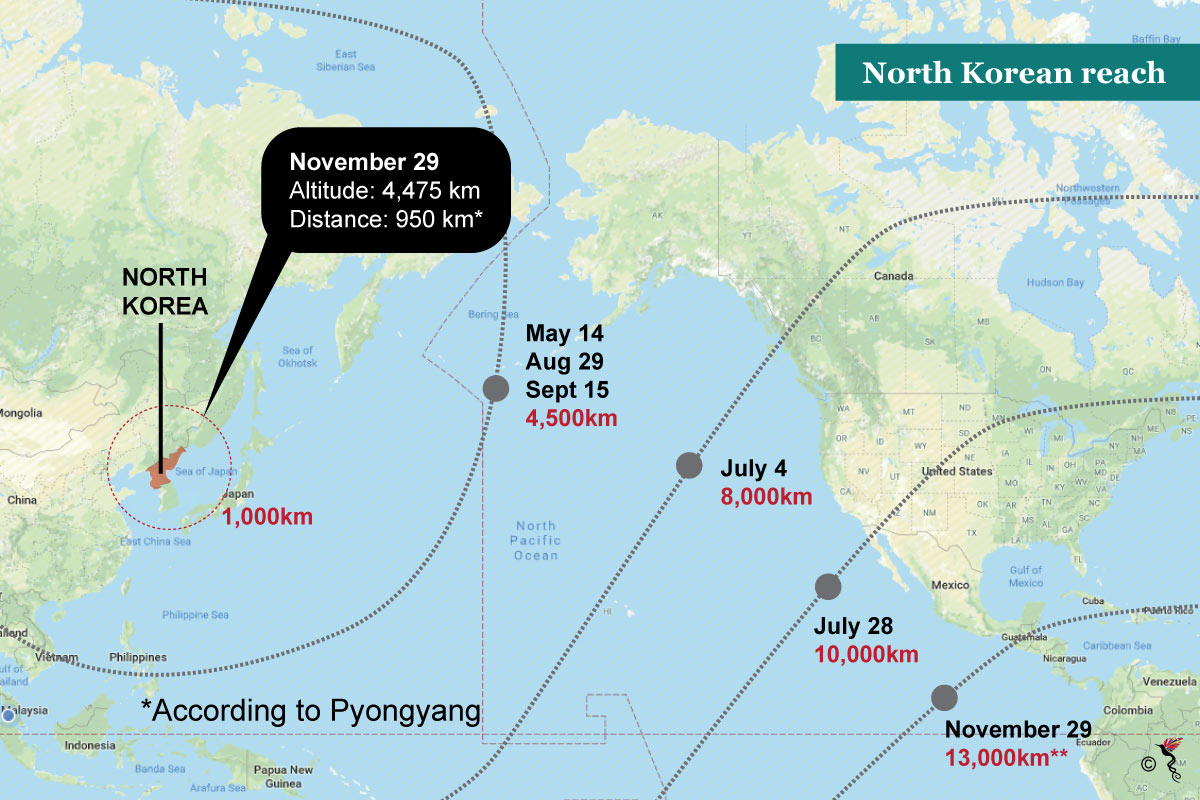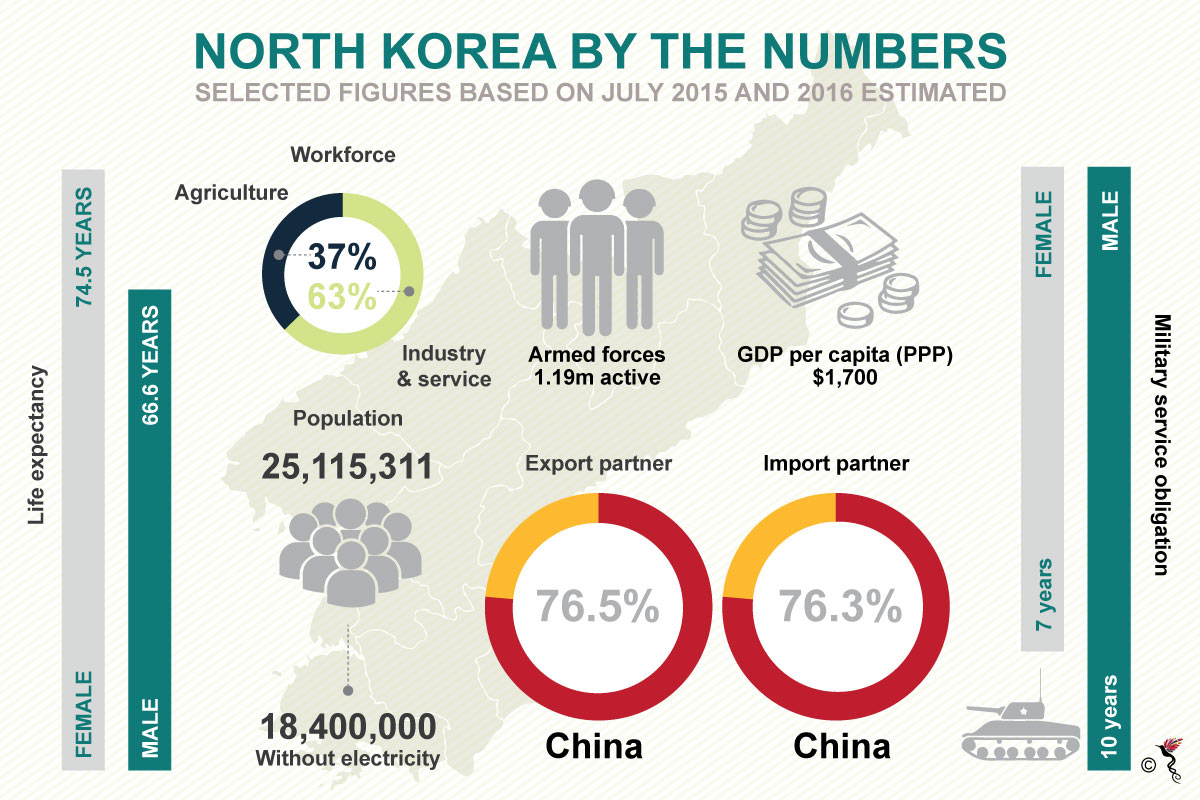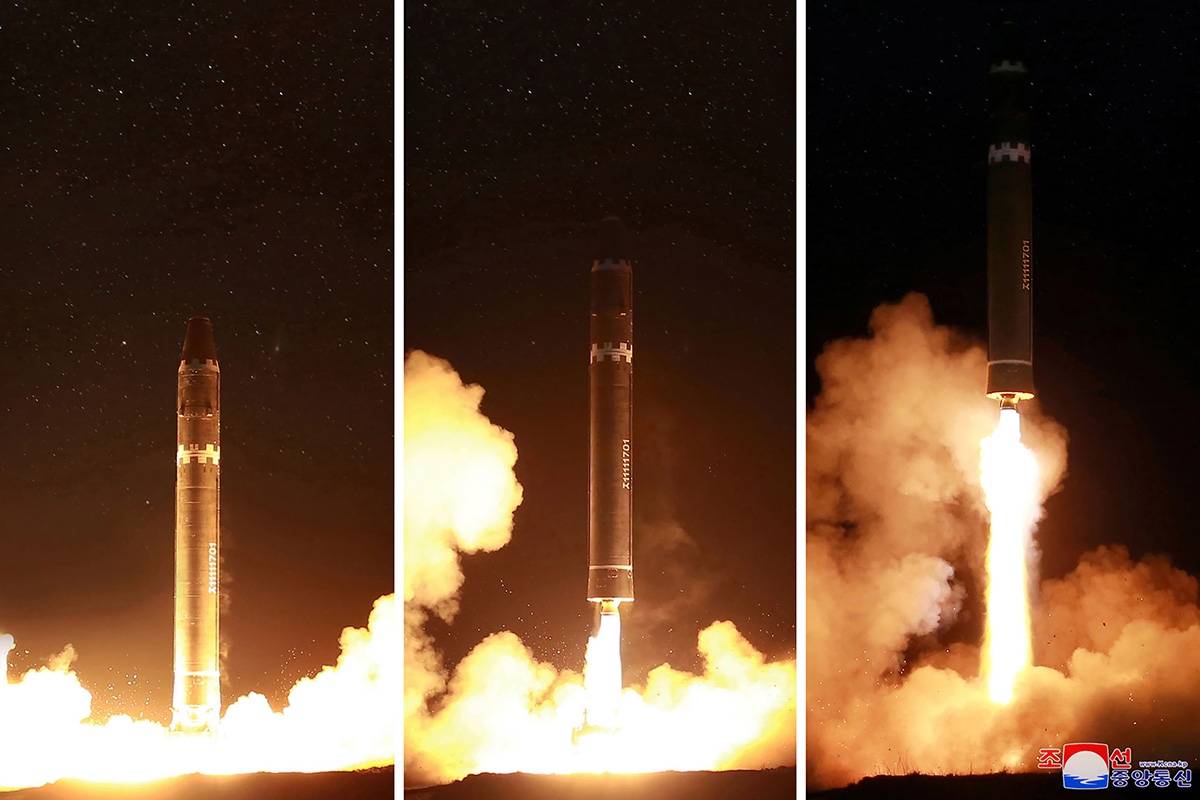From an undisclosed location north of Pyongyang, North Korea launched an intercontinental ballistic missile (ICBM) which flew for approximately 50 minutes at an altitude of 4,000 kilometres before landing 250 kilometres from the northwest coast of Japan.
Dubbed the Hwasong-15, the testing of this ICBM shattered a two-month long missile testing silence by Pyongyang. Unlike the previous test launch in September, the Hwasong-15 did not fly over Japanese territory but analysts have pointed out that missile is within range of the continental United States.

Reach of North Korea’s missiles (Source: AFP).
Playing the balancing game
Southeast Asia lies within the greater East Asian neighbourhood and any action in the Korean Peninsula is bound to have ramifications in this region.
“ASEAN will likely be affected, although the impact will not be uniformly felt across all ASEAN member countries, since some member states have more substantive relations with North Korea than others,” Bernard Loo Fook Weng, Associate Professor of the Military Studies Program at the S. Rajaratnam School of International Studies told The ASEAN Post.
According to Loh, ASEAN members like Malaysia have already been facing pressure by the international community especially by countries like Japan and South Korea who are more directly affected by Pyongyang’s nuclear ambitions.
However, the organisation is well adept at playing the balancing act so that it doesn’t get on the bad side of either the US and its allies or North Korea and its key ally, China. What bellies this act is ASEAN's support for denuclearisation of the Korean Peninsula, while also advocating for dialogue with Pyongyang so that any dispute is settled diplomatically – without resorting to nuclear warheads.
A good case in point is ASEAN’s recent unwillingness to kowtow to US requests to drop North Korea from the ASEAN Regional Forum (ARF). The ARF, has often condemned by some as “highly inflexible” due to its inability to evolve from confidence building to preventive diplomacy.
“ASEAN has been active in engaging North Korea in dialogue through the ARF since the 1990s. Yet, its effects are very limited. The diplomatic efforts and sanctions from the UN have not been effective as well, so it is hard to tell what works and what doesn’t,” said Daniel Wei Boon Chua Assistant Professor of the Military Studies Program at the S. Rajaratnam School of International Studies in an email reply to The ASEAN Post.

North Korea by the numbers (Source: Statista).
Nevertheless, what the ARF has achieved vis-à-vis the current crisis is that it doesn’t isolate Pyongyang which could very well increase the severity of the issue. Hence, at the very least, talks with the North can continue under mediation by a central actor and not break down like it did with the Six Party Talks.
“In the absence of the Six Party Talks, ASEAN as an organization can step up its role as a peace broker simply because it is not a threat to either the North or South Korea,” Senior Lecturer at University Malaya, Geetha Govindasamy told The ASEAN Post.
Why won’t North Korea back down?
On Wednesday, the US, Japan and South Korea requested an emergency United Nations Security Council (UNSC) meeting, requesting China to stiffen crude oil sanctions against the hermit state and the UN to reduce North Korea’s voting rights in the organisation.
US ambassador to the United Nations, Nikki Haley did not mince her words when she remarked to the council that if the US is pulled into a war with the North Koreans, the latter will be decimated.
“We have never sought war with North Korea, and still today we do not seek it. If war does come, it will be because of continued acts of aggression like we witnessed yesterday. And if war comes, make no mistake, the North Korean regime will be utterly destroyed,” she said.
Sanctions against North Korea have been condemned by certain quarters because it just pushes the North into a corner and emboldens it to initiate more destructive actions.
“North Korea under Kim Jong-un has been very defiant in the face of external criticisms and sanctions. The missile launch yesterday is as much a signal to the US as it was to China, which has also begun exerting pressure on North Korea,” Daniel Wei said.
Southeast Asia lies directly within range of any repercussions that might occur from a nuclear fallout. Hence, amid continued belligerence by Pyongyang, it is in ASEAN's best interests to help mediate tensions and if need be, step up to the plate.
Recommended stories:
